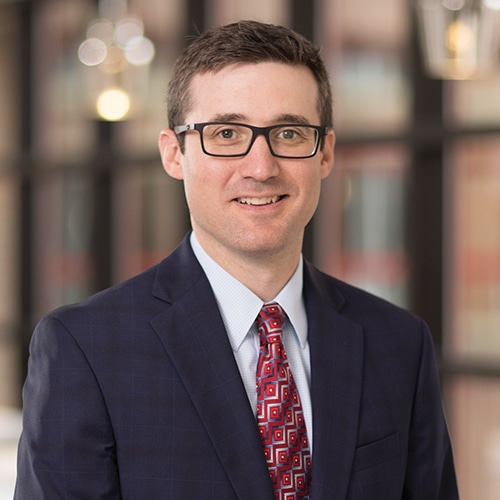Crego MD vs. DO Ruling
The Michigan Court of Appeals released its long anticipated published opinion in Crego v McLean on April 16, 2019. The issue presented in Crego was whether an allopathic physician (i.e. M.D.) is qualified to testify regarding the standard of care applicable to an osteopathic physician (i.e. D.O.) under MCL 600.2169(1)(b)(i). Attorneys involved in medical malpractice litigation have been closely monitoring the Crego case given the potential significant impact the Court’s holding could have on expert qualification at the trial court level. To the relief of many, the Crego panel, in a 2-1 decision, maintained the status quo and held that allopathic physicians are qualified to testify regarding the standard of care applicable to osteopathic physicians.
The trial court in Crego found that the plaintiff’s affidavit of merit signed by an M.D. was not valid as to the defendant D.O. physician. The trial court agreed with the defendant’s argument that MCL 600.2169(1)(b)(i) required the expert to practice in the “same health profession” as the defendant and that an M.D. and D.O. do not practice in the “same health profession” because they are licensed under different sections of the Michigan Public Health Code (MPHC). The trial court and defendant relied on a line of cases starting with McElhaney v Harper-Hutzel Hospital where the Court of Appeals and Supreme Court essentially held that providers licensed under different sections of the MPHC do not practice in the “same health profession” as contemplated in MCL 600.2169(1)(b)(i) and are therefore not qualified to testify regarding the standard of care applicable to providers licensed under a different section of the MPHC.
In holding that an M.D. is qualified to testify regarding the standard of care applicable to a D.O., the majority relied on the fact that the expert and defendant physician were both “specialists” in obstetrics and gynecology. The Crego majority, employing principles of statutory interpretation and citing to portions of the Michigan Supreme Court’s seminal opinion in Woodard v Custer, held that the “same health profession” language of MCL 600.2169(1)(b)(i) does not apply where the defendant and proposed expert are “specialists.” Rather, if the defendant and proposed expert are “specialists” the only applicable requirement from MCL 600.2169(1)(b)(i) is that the expert devote the majority of his/her professional time to the clinical practice of the same specialty as the defendant. The majority found McElhaney and other similar cases distinguishable based on the fact that those cases did not involve “specialists.”
As reflected by the lengthy dissenting opinion, there are persuasive arguments supporting the trial court’s conclusion that MCL 600.2169(1)(b)(i) prohibits allopathic physicians from testifying regarding the osteopathic standard of care and vice versa. However, the majority found sufficient legal basis in the rules of statutory interpretation and select passages from Woodard to reach the most practical result. The Crego holding avoids the need for parties in medical malpractice cases to scramble to locate matching M.D. and D.O. expert witnesses. The holding is also in accord with the reality of medical practice and the increasingly blurred distinction between M.D. and D.O. training and practice. In fact, by 2020 M.D. and D.O. residency accreditation systems will be merging into a single accreditation system.
The defendants in Crego have the option of filing an application for leave to appeal with the Michigan Supreme Court within 42 days from the date of the Crego opinion. We will continue to monitor the case and provide updates regarding any significant developments with this appeal.
More Publications



